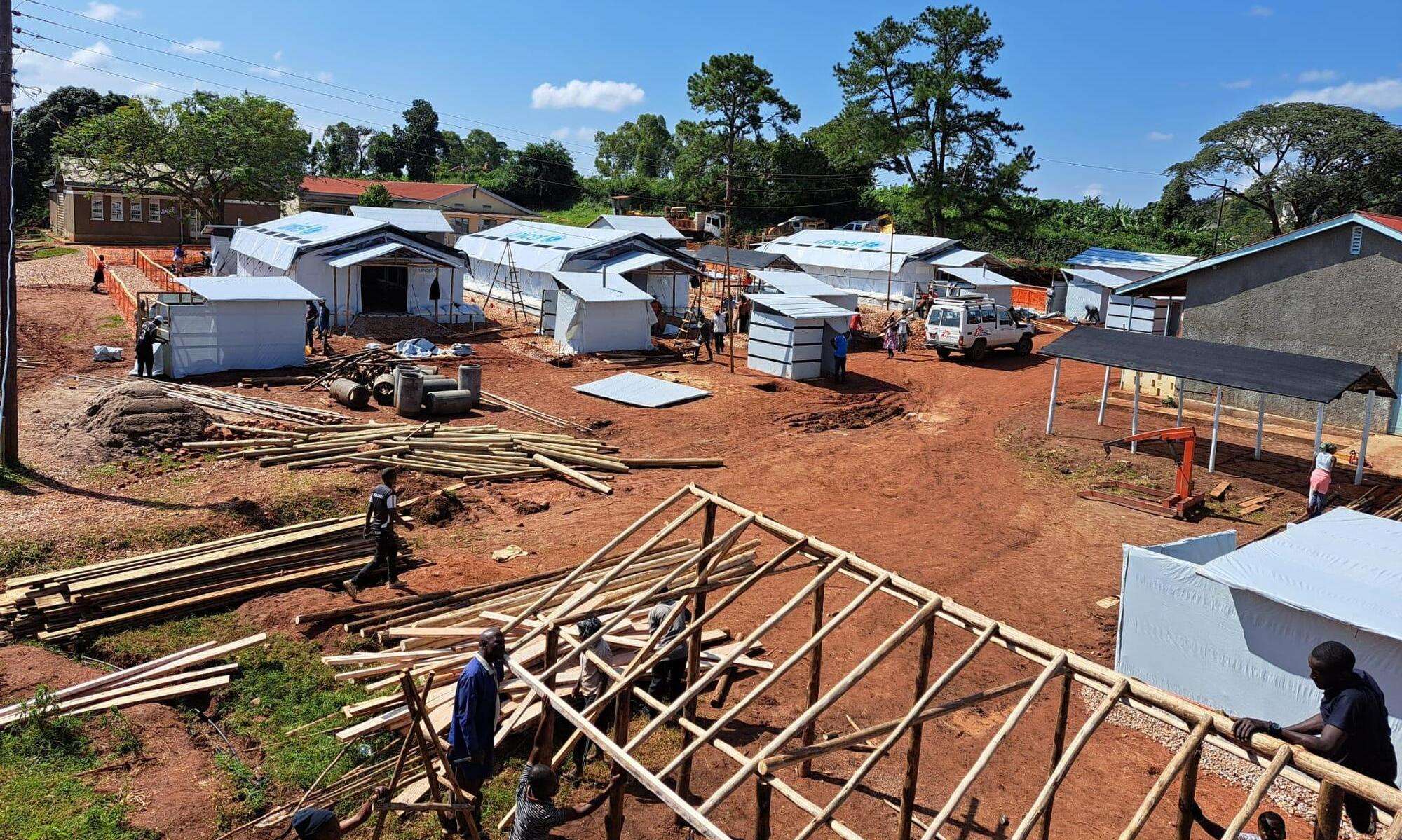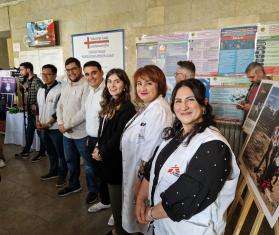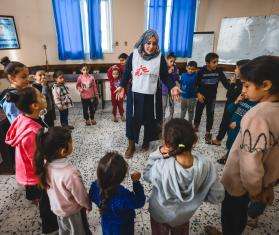Since the declaration of a rare Ebola outbreak in Uganda on September 20, Doctors Without Borders/Médecins Sans Frontières (MSF) has been working alongside the Ugandan ministry of health to support the emergency response.
As of October 23, 90 people have been confirmed to have Ebola and 28 people have been reported to have died from the disease. Another 32 people have recovered and been discharged from treatment facilities like the ones MSF built in Mubende and Madudu.
Ebola is a serious and often deadly viral disease with a mortality rate of up to 90 percent, and its symptoms can range from fever to kidney and liver failure to internal and external bleeding. While two vaccines exist to help prevent the spread of and protect people against the Zaire strain of Ebola, there is no vaccine or treatment approved for the Sudan strain reported in Uganda.
Based on experience from previous outbreaks, teams of MSF doctors, nurses, logisticians, infection prevention and control specialists, and health promoters in these two areas are prioritizing activities to prevent the further spread of the virus, reduce mortality among those who fall ill, and facilitate epidemiological monitoring and research.
In Kampala, Uganda’s capital where cases have recently been reported, MSF plans to carry out similar activities. This will likely include providing patient care, offering health education, providing social support for people who’ve been exposed to Ebola, bolstering prevention and infection control measures in health facilities, and carrying out non-Ebola-related health care.
Preventing further spread of Ebola
In Mubende—the epicenter of the epidemic—several MSF teams are currently deployed. Some of these staff are visiting health centers or schools where people with Ebola have passed through to support prevention and infection control. MSF health promotion teams are also in the area identifying and monitoring contacts of people who’ve been confirmed to have Ebola, as well as raise awareness about how to prevent the spread and what they should do if they develop symptoms.
"One of the most important goals in controlling the spread of the outbreak is to reduce the time between the first symptoms of the disease and its management," said Denis K. Mbae, outreach project coordinator. “We know that the earlier patients are treated, the greater their chances of survival and the less risk there is of the disease spreading within the community.”
On the epidemiological side, MSF’s research arm, Epicentre, is collaborating with the ministry of health to support activities like disease surveillance and infection control and prevention in the areas where Ebola has been detected.
Ensuring care for people who fall ill
MSF continues to support the Ugandan ministry of health in the medical treatment of sick people in Mubende district. One 40-bed Ebola treatment center has been completed, and another 40-bed facility, which will have the capacity to provide intensive care, is under construction in Mubende town for people confirmed to have Ebola. An 8-bed treatment unit in Madudu for those in the early stages of the disease is also now up and running.
"In addition to the construction of the units, we have donated medicines and protective equipment and provided training to medical staff working in the health facilities, particularly on how to care for patients but also on hygiene measures to be implemented that are crucial to avoid transmission at the centers," said Denis Basdevant, MSF project coordinator in Mubende. “We have also provided the ministry with MSF staff experienced in managing cases of hemorrhagic fever, such as doctors and nurses.”
MSF teams also provide medical and social support to people in the affected region who have been forced to isolate themselves for 21 days after encountering someone with Ebola through the distribution of necessities such as hygiene products, food donations, and communication equipment. This support is intended to help with the fact they can’t work while they’re sick.
MSF is also preparing to support health centers to help them provide free primary health care to the population in the areas affected by the outbreak. During some previous outbreaks, primary care was neglected in order for health staff and centers to respond to Ebola—leaving people without basic health services like those for malaria, respiratory diseases, and maternal health.
Supporting vaccination and treatment research
MSF stands ready to participate in research that is expected to begin in the coming weeks on vaccines and treatments for the Sudan strain of the Ebola virus.
"The approval of effective vaccines and treatments for the Zaire strain of Ebola in 2018-2019 in the Democratic Republic of Congo (DRC) and the management of subsequent outbreaks have been crucial tools in controlling the spread of the virus," said John Johnson, MSF's vaccine and epidemic response expert. “These can be developed and tested in advance to determine their safety, but their effectiveness can only be tested during an outbreak. As such—and as was the case with the clinical trials conducted for the Zaire strain vaccines and treatments in the DRC in 2019—MSF is prepared to invest heavily in this research.”




